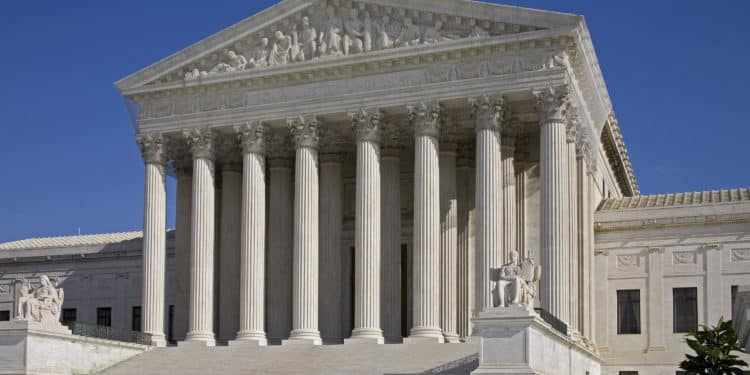Ruling in Universal Health Services v. U.S. ex rel. Escobar will have major impact in government contract fraud cases.
Washington, D.C. April 19, 2016. The U.S. Supreme Court heard Oral Argument today in a landmark whistleblower case, Universal Health Services v. U.S. ex rel. Escobar, arising under the False Claims Act. The Escobar case will determine how specific government contracts must be to hold fraudsters accountable.
At issue is whether a contractor violates the False Claims Act when it submits a claim for payment to the government by implying that it complied with all material terms of a contract or regulation when, in fact, it did not. In this case, the defendant submitted claims for payment to Medicaid to compensate doctors even though no licensed doctors provided any services.
A large number of pro-business groups submitted multiple friend of the court briefs complaining that the First Circuit’s ruling in this case expands False Claims Act liability and would result in a “parade of horribles” harmful to business.
The National Whistleblower Center (NWC) filed an
amicus brief supporting the whistleblower.
“It’s horrifying that government contractors actually argued to the Supreme Court today that they should be paid by the government even when that contractor conceals a basic fact that must be followed to obtain payment,” said David K. Colapinto, General Counsel of the NWC, who observed today’s argument.
“If, like in this case, a defendant knows a doctor is not licensed but submits doctors bills to Medicaid without telling the government that services were not performed by a doctor, that is obvious fraud,” Colapinto said.
Stephen Kohn, Executive Director of the National Whistleblower Center issued the following statement:
“At stake in this case is whether a company that produces grossly defective services leading to the death of Medicaid patients can be held accountable. This case has broad ramifications for all government contracts.”
Several of the Justices were highly skeptical of the contractor’s arguments and expressed concern that a false claim or fraud on the government could not be stated under the facts of this case.
Related Links:




